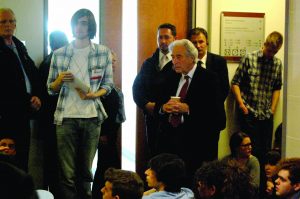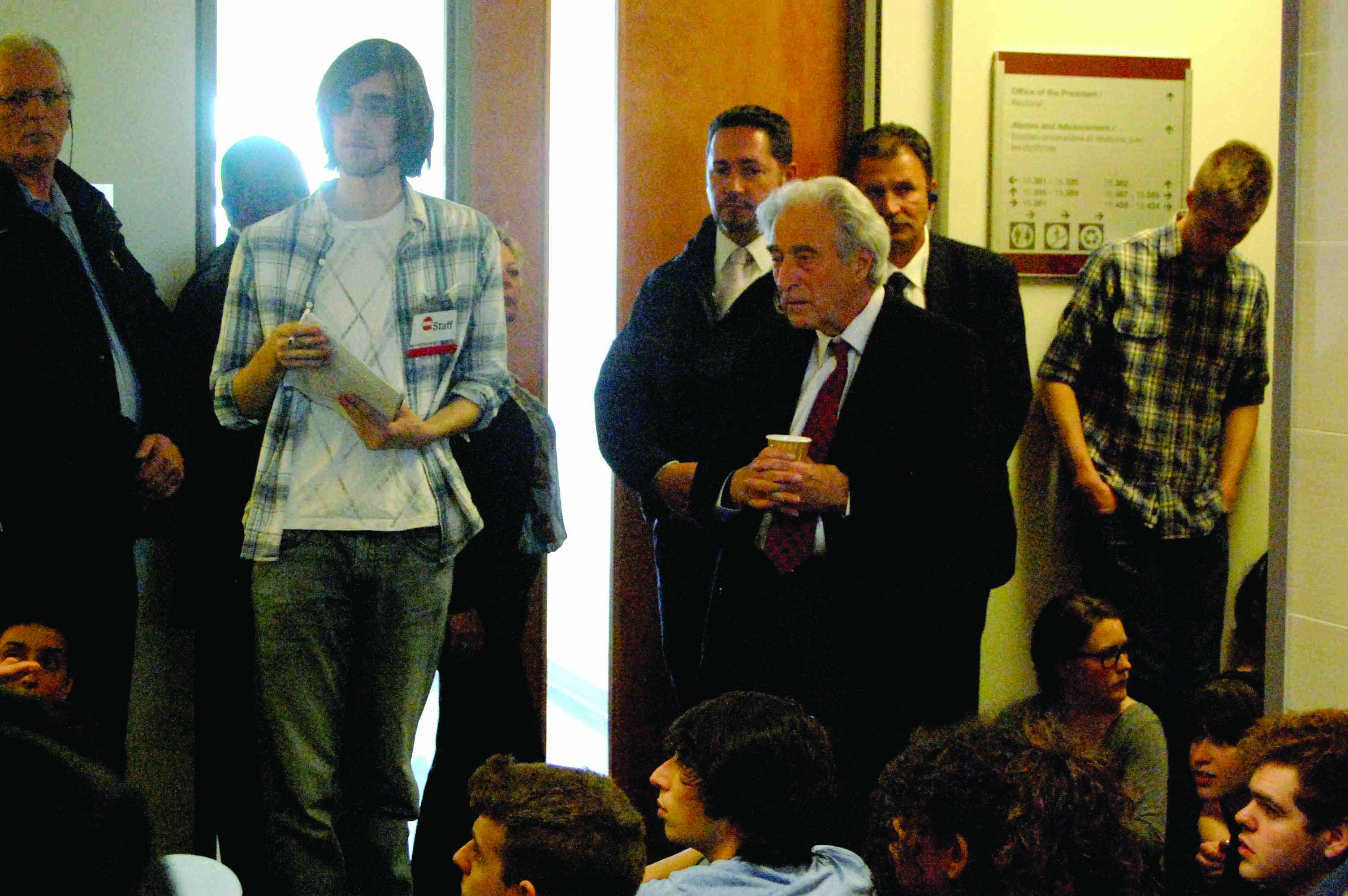
Following a Fine Arts Student Alliance general assembly on April 2, which once again failed to meet quorum, more than 70 students held a sit-in outside Concordia President Frederick Lowy’s office.
After an hour or so of occupation, Lowy agreed to speak to the students who were gathered on the 15th floor of the MB building, and before leaving promised to arrange another meeting where students could express their concerns.
Fine Arts student and senator Andy Filipowich said that a lot of the students occupying the hallway outside the president’s office were FASA students, and more from other departments joined once they heard the sit-in was happening.
“It was a great show of solidarity [from] a lot of students at Concordia,” said Filipowich.
The students demanded to speak with Lowy concerning a number of statements issued to the Concordia community at large over the past few weeks about the university’s firm “business as usual” stance on the strike.
Many voiced their desire for academic amnesty and threatened to continue the sit-in until their demands were met. Once it was decided that Lowy would come out to speak with the group, and that university spokesperson Chris Mota would moderate the discussion, students called for a moderator of their own.
FASA students have been on an unlimited strike since March 1 and have twice failed to meet quorum at successive general assemblies, preventing them from voting again on whether to continue the strike, or cancel it.
“There was a collective decision [that] because the strike was going to continue, there was going to be some action,” said Filipowich. The group unanimously selected Filipowich to be the moderator, while Mota stood in the background.
“The students needed someone to moderate and I was happy to do it,” he said.
Lowy stated to the group that “the people who are choosing not to come to class are the students who are endangering their semesters,” and that academic amnesty was not being considered at this time.
He said that Quebec universities are “underfunded” in comparison with other Canadian schools. Without tuition increases, he would be concerned about “issues of quality.”
“The fact of the matter is that we’ve been doing everything possible to get funding elsewhere,” he told the students. “The [provincial] government says ‘we have no more money to give you’ so we’re saying, let the students help us out.”
A speakers list was established and students took turns voicing opinions about the administration’s approach to the student strike. After a discussion period, Lowy informed students that he had to leave, but would gladly resume the meeting at a later date.
“I’m free to meet with you at a mutually acceptable time,” he said. “As it happens, I’m free tomorrow morning.”
CSU President Lex Gill, who was in attendance at the occupation, offered to facilitate the logistical aspects of organizing the meeting so that it could take place within the week.
Also on the 15th floor was Board of Governors chair Peter Kruyt, who was watching the meeting unfold. After the meeting, Kruyt told The Concordian that he had not come specifically for the sit-in, but because he had an appointment with the president.
“I knew it was happening,” he said. “I’m not worried, [students] aren’t violent.”
Kruyt declined to comment further on the university’s stance when petitioned by students.
The meeting with Lowy is slated to be scheduled in the near future and the university has agreed to send out an open invitation to the student body via email including the location and time.
Filipowich called the decision a “productive first step” and said he was pleased the occupation had gone smoothly and peacefully.
“There were chances that tempers would flare up, but by having someone moderate, we were able to hear as many people’s voices as possible and were able to arrange another meeting where many more students’ voices could be heard,” he said.




